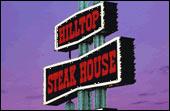This is the Boston Accident Injury Blog, written by Attorney the attorney, a Boston trial lawyer, with over twenty-five years of experience practicing law and trying case in the Boston area and throughout New England. I have started this Blog with two purposes in mind: first to provide persons with legal problems with information about what they can do to recover for injuries and damages caused by the conduct or misconduct of others, and second, to try to provide information to other lawyers about developments in the law in Massachusetts and elsewhere.

The Blog will attempt to inform and educate persons and businesses about their rights and their right of access to the court system when they need to redress wrongs, breaches or other injustices caused by others, and also to provide a forum to review and analyze recent decisions from state and federal courts, which involve interesting fact patterns and/or provide incite as to the present state of the law in Massachusetts, and elsewhere,
I will also try to describe some of my areas of practice, including summary descriptions of cases of interest, which my firm has handled in the past. Today, I will begin with a brief discussion of LEGAL MALPRACTICE .
LEGAL MALPRACTICE SUMMARY
To err is human, but attorneys are not immune from the consequences of mistakes made in the course of representation of a client. Most attorneys carry malpractice insurance for this express purpose. the attorney has represented clients with claims against attorneys who have represented them in cases, but those attorneys have made errors resulting in monetary damages.





